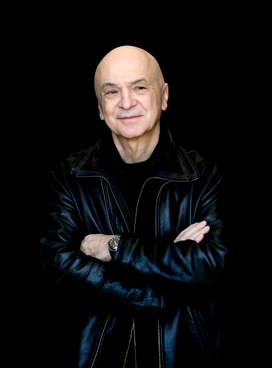In een kruik op een oude begraafplaats in Egypte vonden drie broers in 1945 een verzameling raadselachtige teksten uit de begintijd van het christendom, de zogenaamde 'Nag Hammadi-geschriften'. Ze vormden de inspiratie voor een cyclus van vier stukken die de Oostenrijkse componist Bernhard Lang speciaal voor Nadar Ensemble componeerde. De hoofdpersoon is een vrouwelijke goddelijke figuur die door middel van paradoxale uitspraken haar luisteraars oproept om vanuit een staat van dwaasheid terug te keren naar het 'ware' leven. Hermetika is een beklemmende eclectische cyclus langs verschillende locaties waar zowel het hemelse als het helse naast elkaar bestaan.
Engelen en demonen
Ik ben de prostituee en de eerbiedwaardige.
Ik ben de vrouw en de maagd.
Ik ben de moeder en de dochter.
Bernhard Lang places the woman at heart in HERMETIKA IX ‘Vox Angeli II’. Her sung words are drawn from the Nag Hammadi scriptures, a collection of apocryphal biblical texts found in 1945 in an ancient burial site near the Egyptian village of Nag Hammadi. Striking in these early Christian writings is the duality between the divine and the earthly – a tension that has long captivated Lang and to which he returns repeatedly in his music. Under the title HERMETIKA, he developed a series of compositions exploring the theme, beginning with choral works (Hermetika I-III) and later expanding to pieces for voice and instruments (Hermetika IV-IX). The central role of the human voice in the series is hardly accidental. Liturgical texts are often sung. In spiritual and philosophical traditions, the voice is often seen as a gateway to the soul, and sung texts amplify both the spiritual and contemplative experience.
In HERMETIKA IX ‘Vox Angeli II’, Lang reflects on religion and (female) sexuality in four movements, each unfolding in its own space and atmosphere. The opening movement and second movement Osculetur / Nigra sum set the tone immediately. Between the sounds of the flute, violin and cello, the voice flickers in and out, quoting fragments from the Song of Songs, considered the Bible’s most sensual text. Echoes of Renaissance composer Palestrina’s works intertwine shamelessly with samples from pornographic films. Ancient resources resonate in Lang’s contemporary musical fabric, which he often colours and transforms using electronic techniques like sampling (recorded sound snippets), granular synthesis (new sounds created from shredding and rearranging samples) and loops (multiple repetitions of a sample). Lang’s musical style is a multitude of styles and genres, incorporating elements from classical music, jazz and rock, among others. He effortlessly lets them fade in and out, contrast and dissolve into one another. The best way to experience his music is to surrender to its raw energy – reaching a boiling point in the third movement Le Tonnerre.
The mezzo-soprano, here Els Mondelaers, embodies both the angels and demons driving the text. However exuberant the music becomes, it only sharpens the contrast with the contemplative atmosphere that Lang conjures near the end of this movement, using choral samples – a subtle nod to the earlier works in the Hermetika cycle. In the final movement, The Angel’s Song, the mezzo-soprano performs a gentle, introspective duet with the electric guitar, as though it were a lute. Once again, extreme opposites in sound merge: sweet timbres blend with deliberately distorted ones. The tension that so deeply fascinates Lang remains unresolved—right up to the final note.
Melissa Portaels, on behalf of DE SINGEL
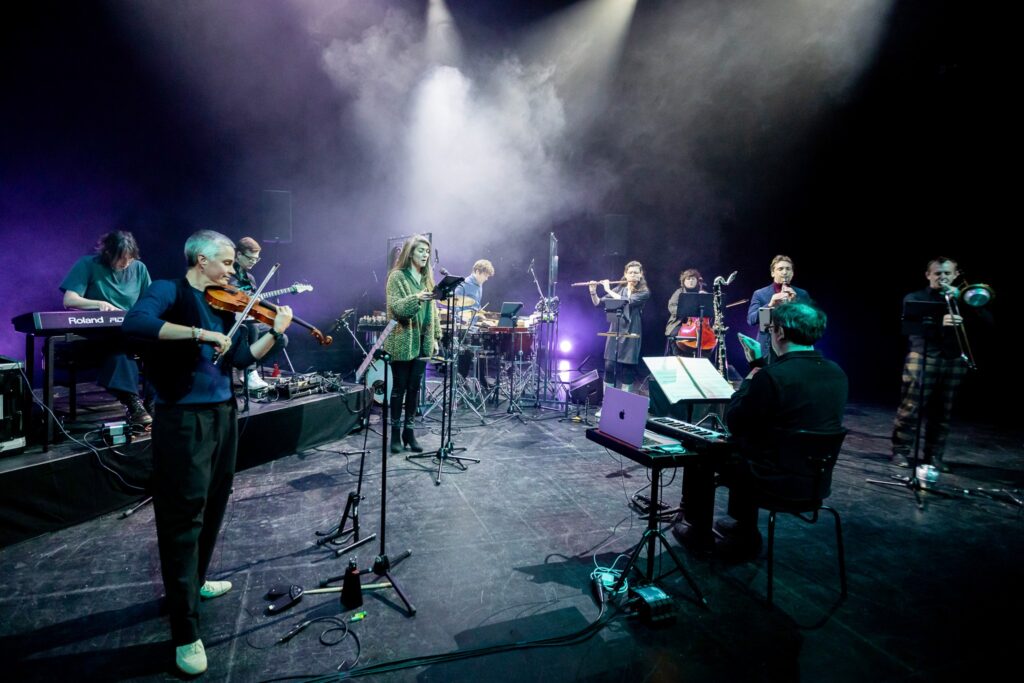
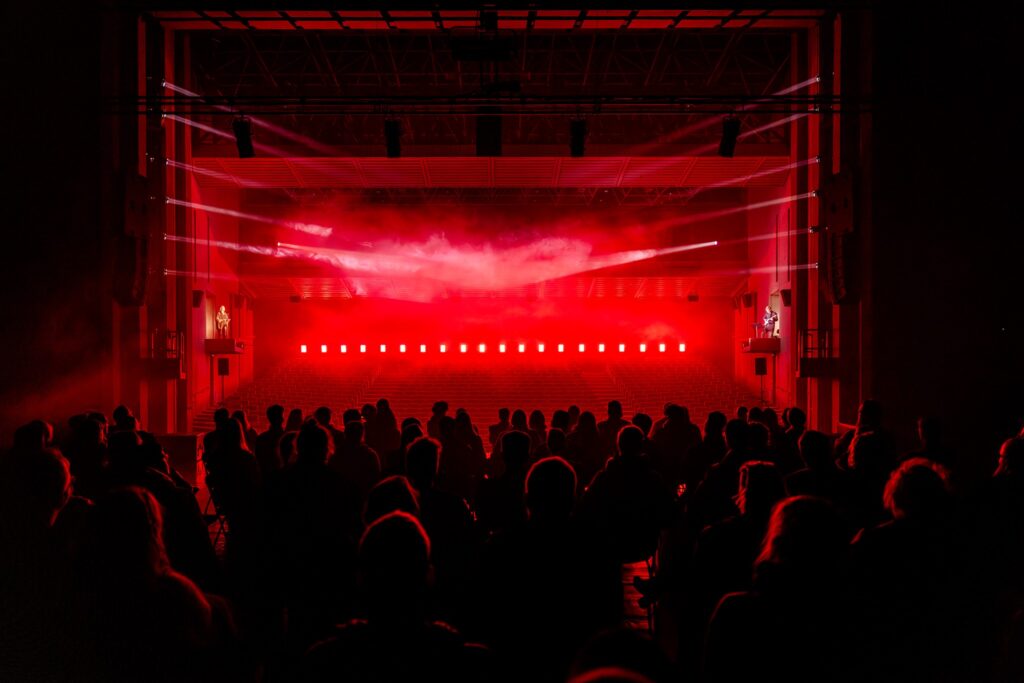
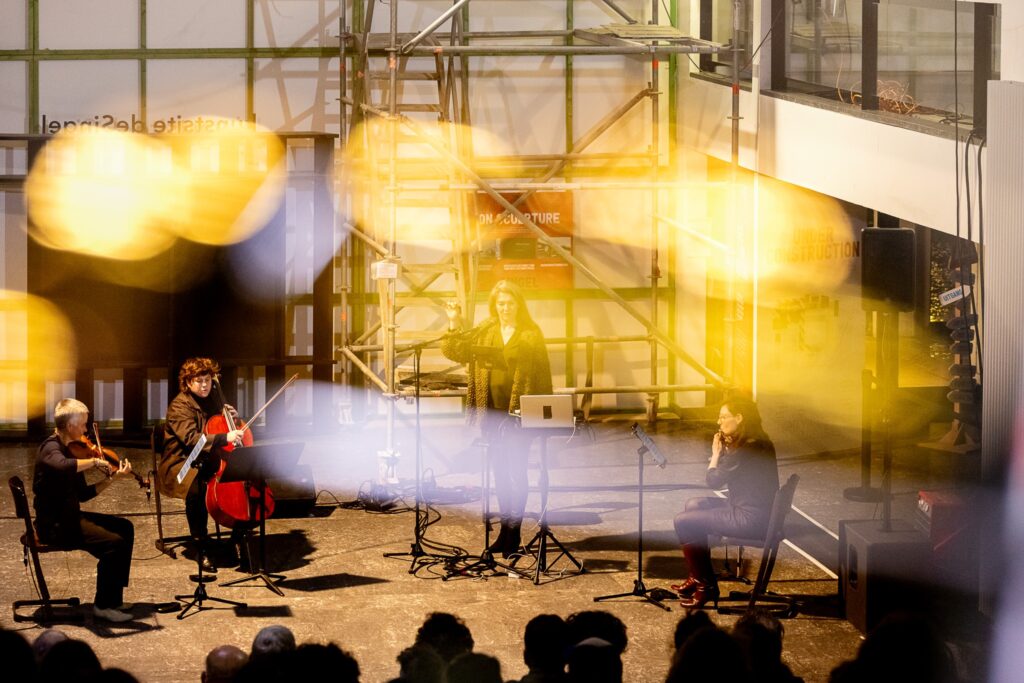
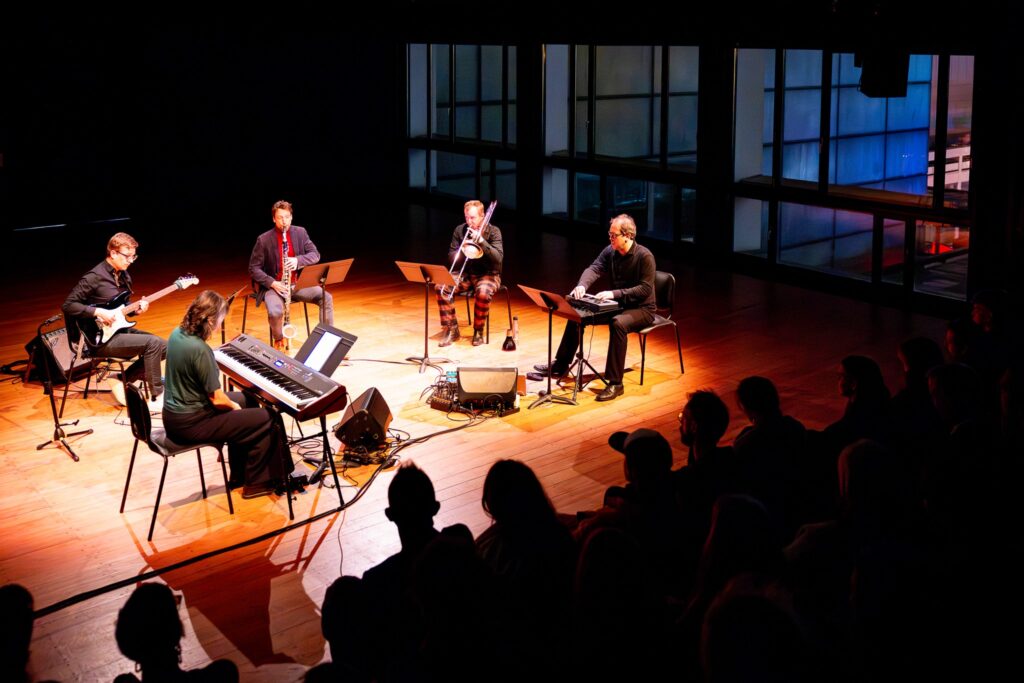
Bernhard Lang: Hermetika IX - Vox Angeli II
Onderdelen: Osculetur me - Nigra Sum - Le Tonnerre - Het engelenlied
Marieke Berendsen, viool en scenografie - Nico Couck, e-gitaar, Katrien Gaelens, fluit - Yves Goemaere, percussie - Wannes Gonnissen, geluid - Robin Goossens, zakelijk leider - Jasmijn Lootens, cello - Pieter Matthynssens, artistiek leider - Elisa Medinilla, keyboard - Els Mondelaers, zang - Thomas Moore, trombone - Dries Tack, klarinet - Veerle Vervoort, productieleider
Hermetika IX werd geschreven in opdracht van Concertgebouw Brugge.
More info soon about the recording we made for Kairos.
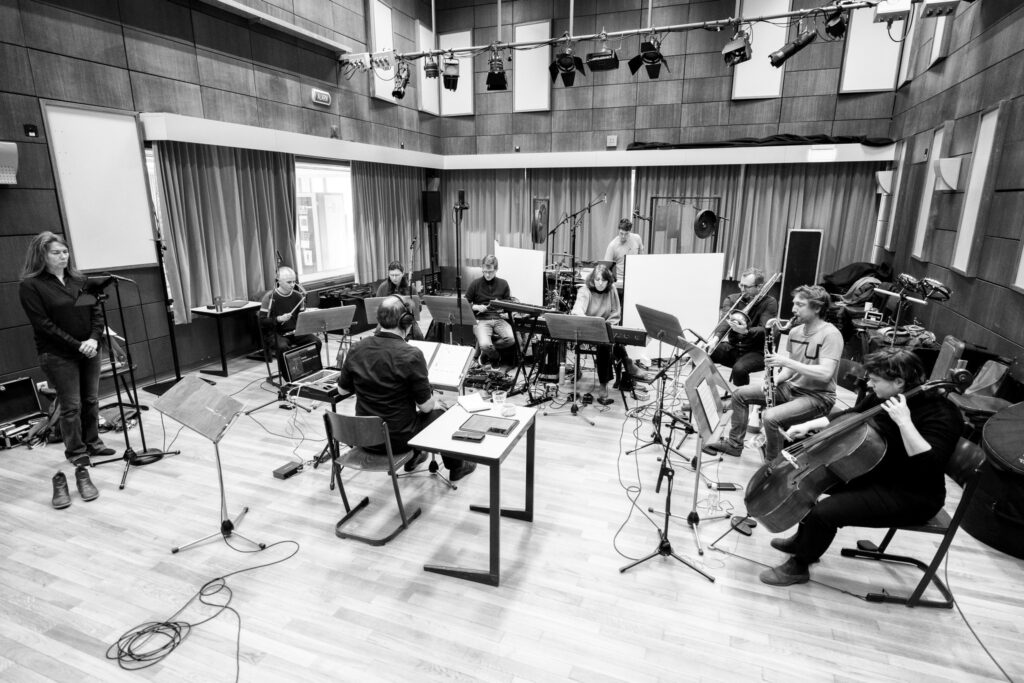
Teksten kunnen hier worden gedownload:

